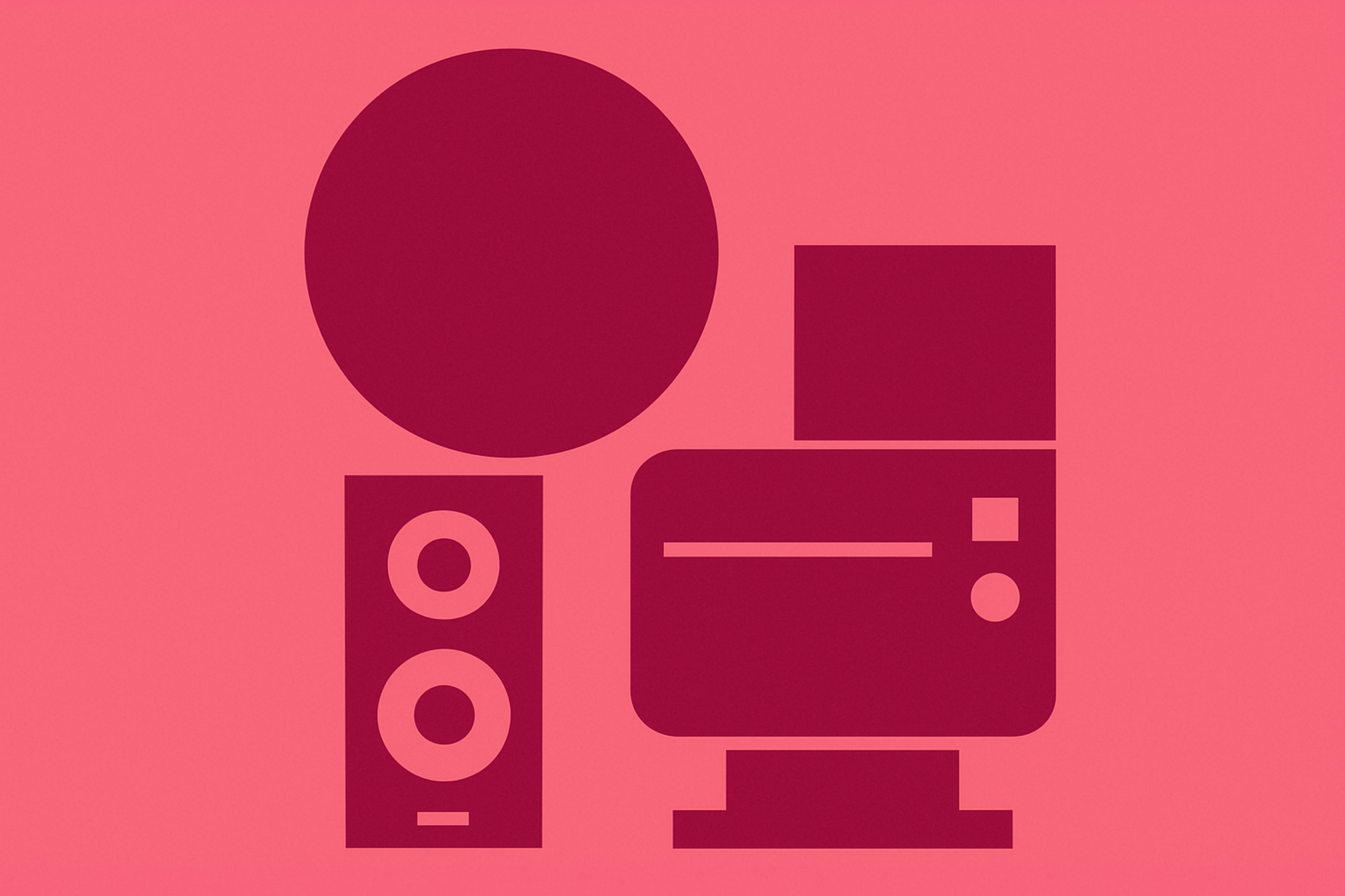Prime Day Chaos, AI Ghosts, and the Tech Industry’s Kitchen Sink

Prime Day 2025 served as a fascinating feat of consumer technology, heavy on price cuts and stirring some unexpected trends. If this year’s retail bonanza proves anything, it’s that our tastes in hardware are bifurcating: We crave ever-smarter gadgets but worry about the technologies propelling them, all as corporate giants and AI startups wrestle for the spotlight. From kitchen upgrades and thumping Bluetooth speakers to deepfake dilemmas and AI-driven company drama, this week in tech news left no circuit unturned.
Sonic Savings and Home Tech Temptations
Prime Day speaker deals were both sonically impressive and peculiarly revealing. Whether you’re an audiophile or an accidental podcast devotee, discounts on portable and smart speakers from JBL, Bose, Ultimate Ears, and others (Engadget, 2025) made high-fidelity listening (almost) ethically guilt-free. Reviewers celebrated the surprising robustness of even small units like the JBL Go 3 and the laughably waterproof Beats Pill, now available in a Kim Kardashian edition—proof, perhaps, that late capitalism’s last refuge is accessorizing your Bluetooth speaker with celebrity endorsement.
Smart speakers like the Echo Dot and soundbars like the JBL Bar line drew crowds seeking better sound alongside voice-activated convenience. Still, there’s a subtext: The more we outfit our lives with voice-controlled devices, the more we implicitly sign up for a slow migration towards ambient computing, overseen (you guessed it) by Amazon, Google, and Apple.
The Cult of Kitchen Tech (Now With More AI!)
Kitchen deals kept pace, promising to turbocharge everything from air frying to rice cooking (Engadget, 2025). The kitchen is now a testing ground for the next AI-moderated convenience revolution, with favorites like the Instant Pot Vortex equipped with features once reserved for science fiction. While bundled espresso machines and pizza ovens may conjure a retro-homely vibe, today’s gadgets are brimming with automation and connectivity, blurring the line between making dinner and programming an IoT fleet.
Ironically, these appliances highlight the paradox of the "smart home": labor-saving automation for people who will still voluntarily stand in line for artisanal pour-over coffee.
AI Ambitions: Funding, Features, and Fallout
Software and infrastructure were just as lively. Supabase’s $100M funding round at a cool $5B valuation demonstrates that open-source Postgres platforms—especially those with an AI-first pitch—can still captivate VCs. Their promise? Making scalable, open software accessible for all, at least until the next round tightens control once again.
Meanwhile, OpenAI’s latest internal tool demo sent the SaaS market into a minor panic (Wired, 2025), encapsulating the new normal: every OpenAI sneeze prompts a thousand competitive headaches, whether justified or not. If your entire business hinges on being slightly better or slightly friendlier than GPT, you may want to start workshopping Plan B.
Deepfakes and the Ethics of Play
This week’s wildest pivot involved the release of OpenAI’s Sora 2 video model, which, to the chagrin of grieving families and cultural historians everywhere, has enabled a new deluge of AI deepfakes featuring the likes of Robin Williams and Martin Luther King, Jr. (TechCrunch, 2025). As Williams’ daughter eloquently protested, making digital ghosts for entertainment is neither innocent nor harmless, even if the law offers no protection for the deceased. The current policy jumble leaves ethical lines blurry and AI-generated pastiches swirling through social feeds—reminding us that just because you can doesn’t mean you should.
This isn’t a purely legal or technical dilemma; it’s a sign that cultural norms will lag far behind technological ability, and a challenge for those who believe dignity isn't reserved just for the living.
Corporate Churn: CEOs, Big Telecom, and TV Word Puzzles
If all that wasn’t enough, Verizon abruptly replaced its CEO with former PayPal chief Dan Schulman (CNET, 2025), possibly foreshadowing fresh strategic mayhem in a sector desperately seeking a 6G identity. This power shuffle follows similar moves at T-Mobile, cementing 2025 as a year of executive musical chairs, with little clarity on whether a new face at the top can revive customer trust—or simply extend the status quo a bit longer.
And, just when we thought meme culture had reached its final form, NBC has greenlit a pilot to turn Wordle into a TV game show (The Verge, 2025). It’s a sly but telling sign of tech’s circular journey, continually mining online trends and public enthusiasm until all that’s left is a broadcasted, monetized echo of last year’s daily distractions.
Security, Software, and the iOS Beta Shuffle
Security-minded readers may have noticed Apple sliding in auto-installing security improvements in its latest iOS 26.1 beta (CNET, 2025). Useful? Maybe, if you trust the update treadmill. Meanwhile, routine feature tweaks to alarms and translation services show Apple perfecting the art of "small batch improvement"—minuscule but relentless nudges to keep you locked in and, presumably, more secure.
Conclusion: All This Progress, None of the Certainty
This week’s round of tech news offers a glimpse of an industry in flux—simultaneously exuberant and uneasy. Hardware deals lure us in with the promise of perfection, AI promises to erase old boundaries (and maybe even the dead), and corporations keep rearranging the deck chairs on the good ship Innovation. But beneath the retail hype and viral headlines, questions of ethical responsibility and systemic fragility simmer, waiting for next week’s Prime Day (or panic) to spark anew.
References
- Engadget: The best Prime Day speaker deals
- Engadget: The best Prime Day kitchen deals
- Wired: OpenAI Sneezes, and Software Firms Catch a Cold
- Silicon Valley Journals: Supabase Raised $100M
- TechCrunch: You can’t libel the dead. But that doesn’t mean you should deepfake them.
- CNET: Apple Releases Second iOS 26.1 Beta
- CNET: Verizon Replaces CEO Vestberg With Former PayPal Chief Schulman
- The Verge: Jimmy Fallon wants to turn Wordle into a TV show
